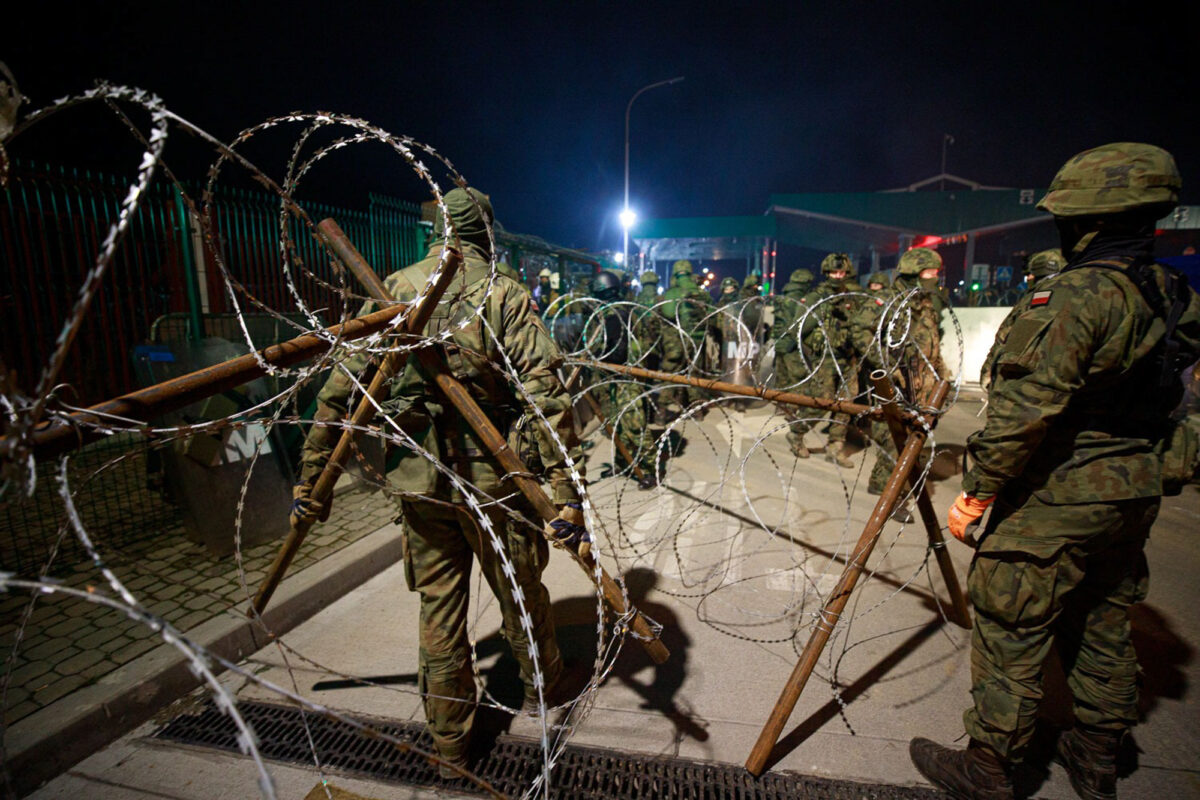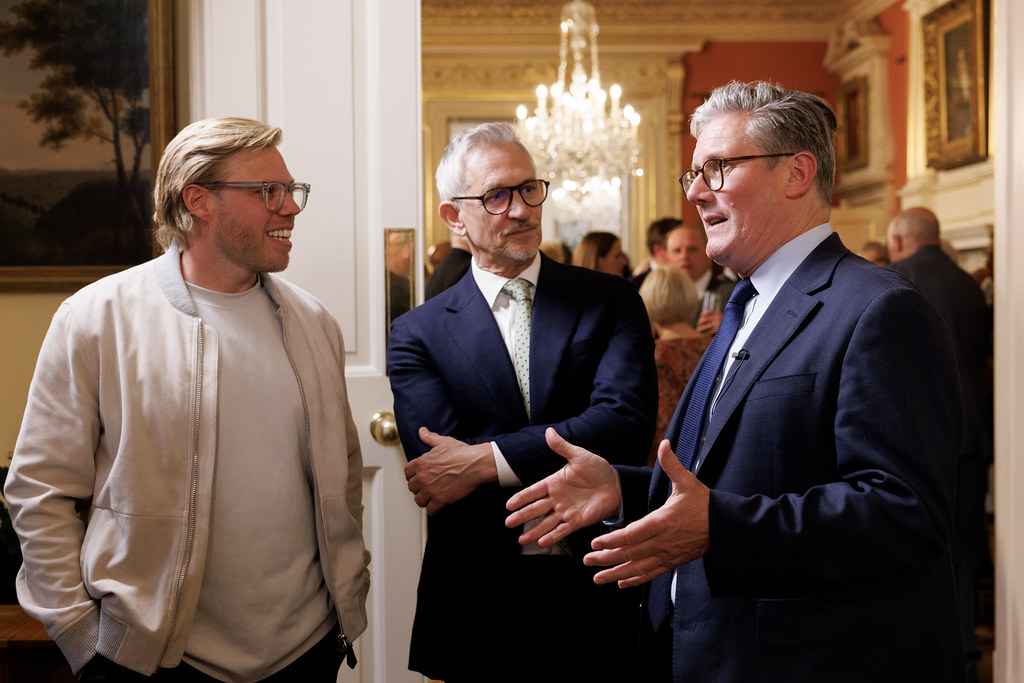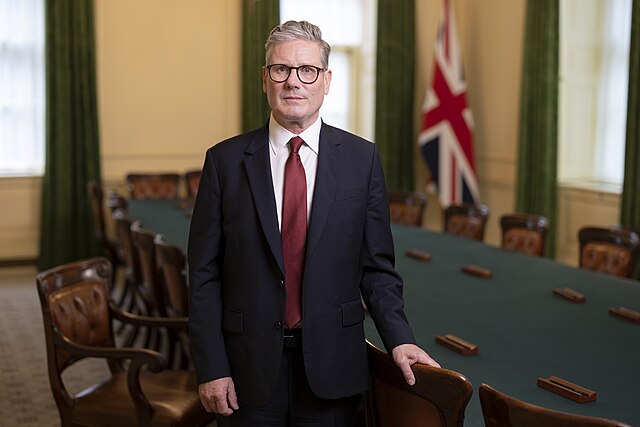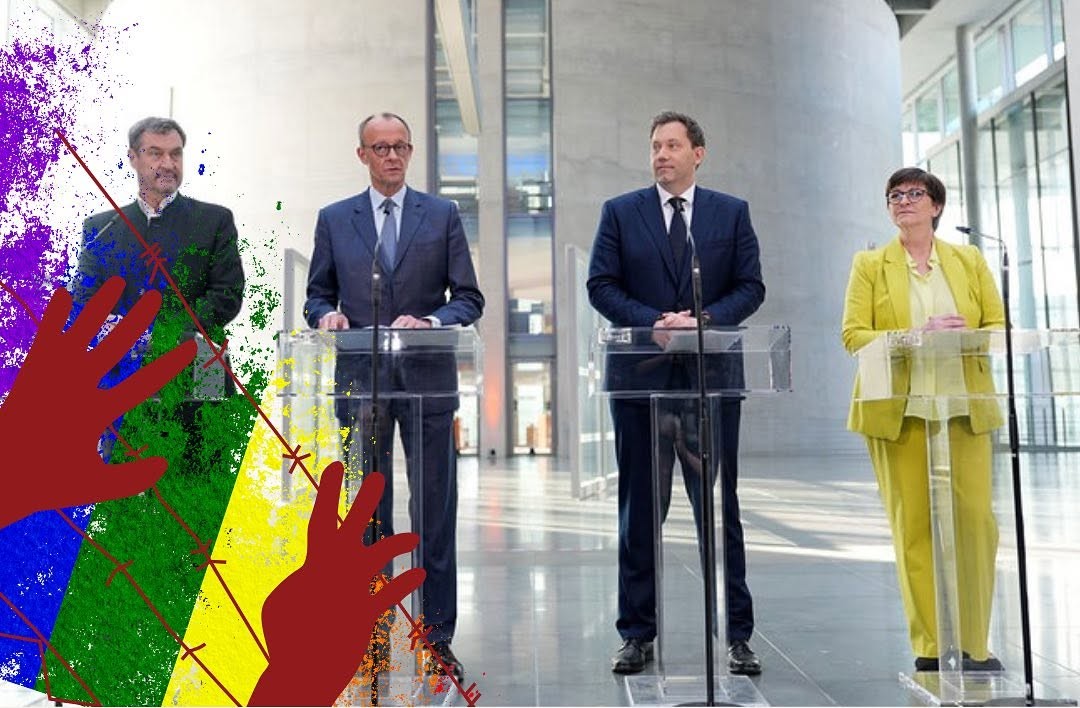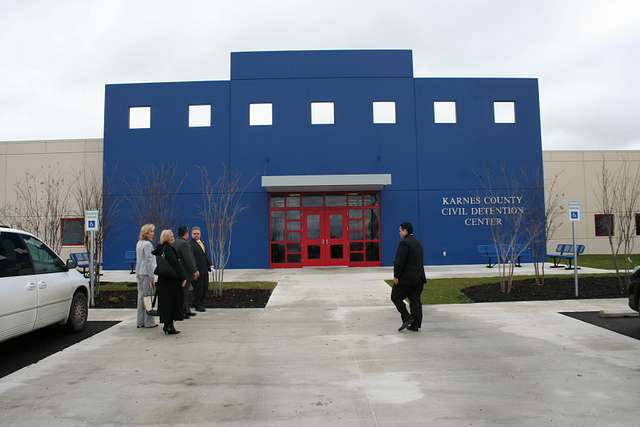by Magdo Chuchracka, Alicja Flisak and Hanna Grześkiewicz
Two officers of the Polish border police throw a 29-year old pregnant person from the Congo over the border fence back into Belarusian territory like a sack of rubbish. Two days later, she has a miscarriage. She is not the only pregnant refugee who has recently tried to reach the European Union over the Polish border. Local activists report that there are known cases of pregnant people who have been violently sent back to Belarus six times.
Around the border, voluntary medics are trying to look after those who most need their help. They examine pregnant people with an ultrasound scanner. One of the refugees, who is nine months pregnant, is complaining about strong pains and a urinary tract infection.
“We want the children to be born in a safe place”, says one of the doctors. People are driven away from the border like cattle – irrespective of whether they are pregnant. And this is happening in a country in which the constitutional court has de facto forbidden abortions in the name of Catholic values. But the protection of unborn lives, which the Catholic hypocrites harp on about, applies only to white Christians.”
Free Hand
The doctors report that some of the pregnant people have considered suicide. They are losing hope. After they receive medical help, they must return to the woods. Without water, without food, without medicine. Often without family and friends, who have been lost on the journey or were separated from them by state authorities, even though it is illegal to use violence separate families.
But that hasn’t interested anyone here for a long time. The deputy press speaker of the border control in Podlachien, Krystyna Jakimik-Jarosz, openly admits that pregnant people are being returned “to the border strips.”
Wojewodschaft Podlachien lies in the North, partly bordering Lithuania, but mainly Belarus. Since the beginning of the humanitarian crisis in mid-August of this year, its border security had not punished a single border guard for brutality or other illegal practises. According to officer Jakimik-Jarosz, there has not been a single complaint about her colleagues. Small wonder. None of the border guards would report their own people, and the masked officers, who have mainly hidden their car number plates, cannot be recognised from the outside. It doesn’t matter that this is illegal. For the refugees, who also don’t speak any Polish, it is almost impossible to make a complaint about abuse.
The border guards have a completely free hand. They can do what they want. An Iraqi journalist reports that the border police have shot at the people in the woods with rubber bullets. One of his friends was seriously wounded there. There have also already been deaths. “We feel like we’re fair game. I don’t know if I’m still a person. I have become a hunted animal. They have robbed me of my humanity. My crime is that I have the worst passport in the world”. Some of the refugees call the no-man’s land between Poland and Belarus the “Second Iraq”.
Hundreds of thousands of people want to leave the “first Iraq” – devastated by Western wars and militant Islam, like many other states in the Middle East, many people there live in disgraceful conditions threatened by hunger, poverty and violence. The EU deal with Turkey has prevented people from coming to Europe by land since 2016. Now only the dangerous and often fatal path over the Mediterranean remains.
Brought to the border
Since the EU applied sanctions on Belarusian president Alexander Lukaschenko following the supposedly rigged elections of August 2020, a new possibility of escaping misery has emerged. The Belarusian travel agency “Oskartur” is organising flights to Minsk and four nights in a hotel for around US$3,400 (€2,935). For the last few months, Lukaschenko had been flying in people from Baghdad and Istanbul and bringing them to the border with the West. First to Lithuania, and for the last few weeks also to the border with Poland, 300 kilometres away, where the Belarusian border guards drive the people towards the fences that separate the two countries.
According to media reports, the government in Minsk is extending these activities. On November 7th 2021, the Welt am Sonntag reported that roughly 40 weekly flights until March were planned from Istanbul, Damascus and Dubai.
Grodno has 380,000 inhabitants and is nearly 20 kilometres from the border. In Grodno, the rumour mill is buzzing. It says that the refugees are good business. A woman can take $100 for a flat of 30 square metres for 12 people. This rumour can’t be proved. The Belarusian media do not report the migrants. “No independent journalist in the country is reporting the migration phenomenon. Also no NGO”, says Alexej Schota from the local news portal hrodna. life. It is simply too dangerous. The authorities threatened to close down the website in September.
In Lenin Square in the town centre, at the foot of the memorial to Russian revolutionaries who rejected all forms of nationalism, people lie in sleeping bags and tatty coats. Around the market place, many of them are looking for weatherproof boots and warm clothing. The path through the forest to the border is barely possible in flip flops. And it’s getting even colder. Winter is coming: at night the temperatures are already sub-zero.
State of emergency declared
On 2nd September, the Polish government declared a state of emergency along the Belarusian border. Since then, 183 cities and villages are closed to outsiders, and open meetings are forbidden. Aid organisations have been barely able to reach the refugees who have managed to cross the border. Accompanying the state of emergency, the official ruling has ordered a “restriction of access to public information about activities in the area of the state of emergency regarding the defence of national borders and the prevention of and fight against illegal migration”. In plain language: journalists and doctors, lawyers and activists must stay out.
In the last three months, the Polish authorities have registered more than 28,500 attempts to cross the border, According to reports from people who live in the closed areas, at the moment there are around 3,000 refugees living there. Although there is no way of counting exactly how many people are involved, only a few individuals are occasionally able to bring simple soup and warm clothes into the woods. Everyone else must wait outside. “We can only help those who manage to get out of there”, says Marta Gorczynska, a lawyer who is active in the Helsinki Foundation for Human Rights in Poland, and in the Grupa Ganica (Border Group). And even this is difficult, as the helpers are fully overwhelmed.
Cynical charge
Meanwhile, in the Polish media the horror scenario is being propagated of an anonymous mass which is threatening to overwhelm Poland. You see very little in either the liberal media or that close to the government about the individual experiences of the refugees. Pictures of arrests from the Polish side are reminiscent of those of the apprehension of members of criminal groups.
At the same time, the Belarusian station Belta News is trying to further stoke the fires of conflict. The station regularly broadcasts reports about the “unsustainable conditions” at the border fence. The government in Minsk is accusing the Polish authorities of hurting the refugees and restricting the work of journalists. On the 9th of November, President Lukaschenko officially warned his neighbour against further provocations in the border area, referring to the protection of women and children. The refugees have become pawns in their game.
Grupa Granica, an alliance of journalists and doctors, lawyers and actives, demands of the Polish authorities that they at least allow doctors and paramedics into the special zone. The group “Medycy na Granicy” (doctors at the border) now offers consultation by telephone, to provide medical advice as a bare minimum. More than 500 doctors have registered to help.
It was some time before the larger Polish aid agencies and charities responded. Poland’s largest charity “Wielka Orkiestra Swiatecznej Pomocy” (Large orchestra of Christmas help), which collects money every year for medical equipment has allowed “Medycy na Granicy” to use all their equipment, but only in the last few days. The Polish Red Cross has now opened all its sites for the collection of donations.
Just over 2 weeks ago, the Brandenburg initiative “Wir packen’s an” (we will tackle it) reached Wojewodschaft, the capital of Wojewodschaft Podlachien, with a lorry load of aid supplies. Last Tuesday, a further transport was able to reach its goal. Together with the initiative “Seebrücke”, “Wir packen’s an” is currently trying to gain a permit from the German interior ministry to be able to bring refugees to Germany on their return journey.
Little Infrastructure
Apart from this, in the border area there has so far been only very little international support. Many of the local activists are burned out because of the permanent activity. “Every day there is more work at the border. The shift that ended their work at 8 o’clock this morning could only sleep for one hour”, reported an activist from “Medycy na Granicy” last week. The situation is more than overwhelming. The local groups are therefore asking that journalists, doctors and lawyers come to the border if they are able to arrange this. As well as personnel, there is also a lack of heated tents and combat support hospitals.
The Polish army and the border patrols really have not yet built anything, as recently reported in the newspaper Krytyka Polityczna. Sylwia Urbanksa and Przemyslaw Sadura spoke of “total chaos” at the border: “The Polish state is not trying to organise an adequate number of transit camps for the refugees. Instead, the exhausted people are driven back into the woods.
Meanwhile, the conservative Polish PiS government under Mateusz Morawiecki is abdicating responsibility and demonising the refugees. Here, they are playing the same game as the European Union. The woods in the Polish-Belarusian border territory and the emergency complement the Mediterranean, where emergency sea rescue is being criminalized. It does not help to merely point out the fact that Lukaschenko is using the refugees as a weapon and Belarus does not care about their fate. Because Lukaschenko’s “hybrid war” is an attempt to put the EU under pressure through organised migration. This is only able to work because in previous years, the EU has increasingly closed its outer borders and visibly outsourced its migration policy to so-called “third countries”, in order to keep refugees away from its own territory at any price.
Praise from Frontex chief
The “European solution to the humanitarian catastrophe at the Polish-Belarusian border is the deployment of the European “border control agency” Frontex. This solution has been demanded by part of the parliamentary opposition in the Sejm as well as Polish civil society. The effect is one of using a fox to guard chickens. For Frontex was not created to save people, but to deter refugees, as shown by increasing claims that Frontex is making illegal “pushbacks”. No wonder that the cooperation between the Polish authorities and Frontex, which is located in Warsaw, seems to be working well. Even if the Polish government continues to reject all Frontex activity on the border, in the end Warsaw receives enough resources to be solely in charge. Frontex executive director Fabrice Leggeri recently thanked the Polish authorities for the help in protecting the Eastern EU outer border. He was impressed by the methods which were deployed to control the border. There has been a permanent exchange of information since the beginning of the crisis. Leggeri also approves of the newest idea of the PiS government to build a wall along the Belarusian border. That fits the bill. The member states of the European Union and the Schengen area have already built more that a thousand kilometres of wall since the 1990s, in order to prevent refugees from coming to Europe.
Furthermore, the Polish government is using the situation on the Belarusian border to promote their own political agenda. In the name of the “hybrid war” it is preparing a “law to defend the fatherland” and planning to further increase military spending. Vice-president Jaroslaw Kaczynski has already announced a “radical strengthening of the armed forces”. Poland already belongs to the few countries which have achieved the NATO goal of spending a minimum of two percent of the Gross Domestic Product (GDP) for military purposes. Warsaw would like to increase this spending to 2.5% of the GDP by 2030. Racism and militarism are also in this case two sides of the same coin. The horrible pictures from the border have at least led to a fragile pro-migration movement to develop for the first time. In Warsaw and Krakow, people are taking to the streets again and again under the banner “Stop the torture on the border”. We can hope that this movement will get larger, in order to increase the pressure on the government.
No Solution in Sight
Meanwhile, refugees have been organising themselves. On Sunday, 7th November, thousands of them gathered five kilometres from the border near Grodno. On Monday, 8th November, they were joined by further groups from Minsk and Brest. Together, they walked along the motorway towards the Polish border – accompanied by the Belarusian military – and tried to cross it. The Polish border guards responded with tear gas. There were also reports of shots in the air, although this has not been confirmed independently. But some refugees did film the acts of the Polish and Belarusian border troops.
Now, 12,000 soldiers have gathered on the border. Warsaw says that if necessary, more can be mobilised. They want to stand up to Lukaschenko, no matter what happens. President of the EU Commission Ursula von der Leyen is of the same opinion. On 8th November, she demanded sanctions against Lukaschenko. In cynical diplomat’s jargon, she stated that she wanted to prevent a humanitarian catastrophe and support a “safe return” for people. Meanwhile, the Lithuanian parliament in Vilnius has declared a state of emergency on the border with Belarus, initially limited to one month. This means that death on the EU outer borders will continue.
Magdo Chuchracka is a queer activist who lives in Berlin. She works at the Goethe University in Frankfurt-Main, with a focus on Queer Theory, Gender Studies, Feminism, Media and Political Science.
Alicja Flisak is an activist and socialist who lives in Berlin. She is a sociologist and works in the international department of the party Die LINKE.
Hanna Grześkiewicz is an activist who lives in Berlin. She writes and researches the subjects social movements, Eastern Europe, Feminism and Music/Culture.
This article first appeared in German in the junge Welt newspaper. Translation: Phil Butland. Reproduced with permission.
War and corpses – the last hope of the rich: Hands off Russia and China! Rosa-Luxemburg-Konferenz, 8 January 2022. More information here.
